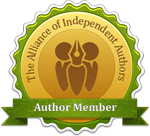“Writing is finally about one thing: going into a room alone and doing it. Putting words on paper that have never been there in quite that way before. And although you are physically by yourself, the haunting Demon never leaves you, that Demon being the knowledge of your own terrible limitations, your hopeless inadequacy, the impossibility of ever getting it right. No matter how diamond-bright your ideas are dancing in your brain, on paper they are earthbound.” ~ William Goldman
As Sylvia Plath once wrote, “the worst enemy to creativity is self-doubt.” Self-doubt can crush creativity. When we believe that we are no good at something or find ourselves doubting our writing and creative work, it is futile to mentally wrestle with these thoughts. Our mind will always be playing its records, what matters is how you react to its thoughts and which records you choose to hear as they play.
You may have had thoughts that you aren’t good enough, creative enough, or imaginative enough to embark on a certain project and that resistance is holding you back. Perhaps when you read back your writing, it doesn’t flow as freely as it could, and you find yourself repeatedly tweaking it or filled with doubt.
Every time you deem your work as flawed or you as inferior, these self-limiting beliefs sabotage your potential for both creative success and enjoyment. Low confidence can cause missed opportunities and missed dreams on every level, and there’s nothing you can do about regret. There is, however, much you can do about the inner artist who longs to express and be free.
Our minds are constantly churning out judgements, assessing everything as good or bad, which can make it hard to stay present. When we’re not present and distracted by doubts about our lives and work, it’s easy to be seduced by the internal chatter of our minds.
Negative self-talk and the stories we tell ourselves mar our inner landscape and reduce our ability to express ourselves creatively leading us to question what we’ve written on the page. Your mind can feel congested, making it all the more difficult to relocate that space where you are freely creating.
Yet attempting to fight or challenge your thoughts is ineffective and may even lend them more power, making them all the more incessant or distracting. Each time you engage with negative thinking, you fuse with the very thoughts that are making you insecure or upset, which in turn can make them overwhelming. So instead of participating in what is effectively a pointless drama that only serves to make you feel bad, give yourself a gift and utilise these tools to shift your perspective.
5 Techniques to Overcome Writing Doubt
- The first step in healing your negative thinking and self-doubt is simply to be aware of what you are thinking. Simplistic as it sounds, when you pause to notice what your mind is saying it creates a space between you and your thoughts, in turn affording you the opportunity of choice.
- When your inner-critic is shooting down your ideas or telling you that your work is rubbish, name the thought and say to yourself, “Ooh here’s the I’m-no-good-at-writing/painting/creating ‘story’ again” or “here’s the my-novel-sucks ‘story’ that I tell myself.” Next, thank the thought for sharing and move on. The thought may still exist but after you redirect your focus to the present moment, you won’t become caught up by it and see it for what it is, a story you tell yourself. It’s a technique borrowed from ACT (Acceptance and Commitment Therapy) and there is power in its simplicity.
- Another effective and also beautiful technique to use when the incessant chatter seems unending, whatever the cause may be, is to imagine your thoughts as leaves on a stream. Allow yourself to pause, breathing gently, evenly and smoothly, and visualise your thoughts as leaves floating down the stream. As you are imagining the leaves to be your thoughts slipping by, watch without touching them or picking them up and thus engaging with them. Simply allow the leaves to float down the stream without affecting you and keep breathing, calm and present.
- This technique from psychologist Dr Russ Harris, author of ‘The Happiness Trap’ is to insert the phrase “I’m having the thought that…” in front of whatever negative thought you are having. The idea is that in doing so you see that it is all theatre, just a collection of words that you are telling yourself without any basis on truth.
- Finally, if you enjoy using affirmations, which can be useful reminders of where you want to be even if you don’t feel there [yet], stick a post-it note on your computer with your own affirmation depending on your personal goals. It could be “my writing flows with ease” or “I choose to trust the creative process” for example, reminding you to keep writing unfettered by doubt.
All these techniques are wonderfully effective but without trusting the process your writing can become an uncomfortable process. Though it deserves a post of its own, trust often starts out as a simple decision. By choosing to be supportive of yourself in a gentle and encouraging manner, instead of being critical or unkind, you’ll find the doubts begin to diminish in the process of actively creating.
The critical part of your mind will inevitably attempt to thwart your progress but keep going and write. Left to its own devices the mind can come up with all kinds of reasons why you think you are not good enough or creative enough but don’t buy into this doubt. If you let yourself to be seduced by your internal chatter and engage with ongoing thoughts of the past or anxieties about the future, you’ll not only make yourself unhappy but also do your creativity a great disservice.
No matter how insecure you feel about your own abilities and purpose, every one of us is and has the capacity to be creative. By being conscious of your thoughts and utilising these simple yet effective techniques, you can express yourself unhindered by internal chatter and allow your creativity to truly flourish.
“Writing is like hunting. There are brutally cold afternoons with nothing in sight, only the wind and your breaking heart. Then the moment when you bag something big. The entire process is beyond intoxicating.” ~ Kate Braverman
If you enjoyed this post, feel free to share love. ♥
P.S. Sign-up to my newsletter, The Creative Om, should the mood take you, Namaste ♥
You may enjoy:
The Beast of Self-Judgment | Lauren Sapala
3 Ways to Train Your Brain to be More Creative | The Write Life
The Importance of Positive Self-Talk for Writers | The Write Practice
5 Ways for Writers to Overcome Self-Doubts | Write to Done
Writing Doubts: Climbing Out of the Pit – Helping Writers Become Authors
100 Tips to Alleviate Self-Doubt | Jane Friedman
Writability: Why Writing Through Resistance is Essential
Self Publishing Banishes The Fear of Writing – by Joanna Penn | The Creative Penn





[…] 5 Effective Psychology Techniques to Overcome Writing Doubt http://t.co/nFYDVooA7b […]